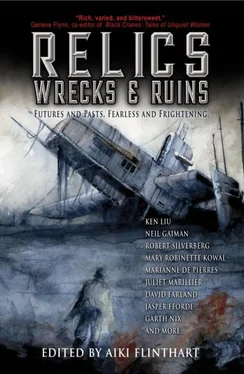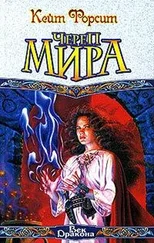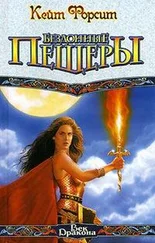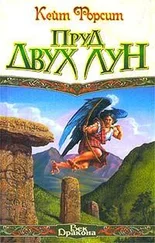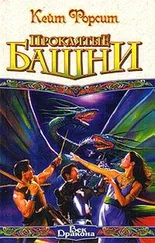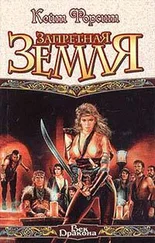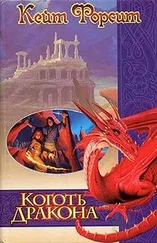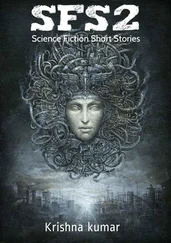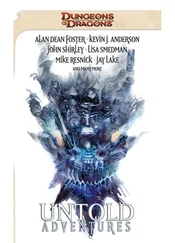#
Mr. Wainright led the way down the worker’s staircase, our progress echoing in the deep stairwell. Ten years of service had left their mark upon the gray walls—scrapes, smears, gouges—and the air had a staleness, underpinned by the ever-present caustic stink. Havarr phased in and out above us, checking each floor as we descended.
“Did you know that your knife is the only one with a full starburst etched upon it?” Mr. Wainright asked, glancing up as Havarr hovered a few yards ahead then disappeared again.
“Of course.” In fact I had found illustrations of all the starburst configurations on the other knives and memorized them in the hope that it would make sense one day. “The current theory—from Mr. Bentham—is that the symbol is the name of the Celestial who held the knife.”
We rounded another landing.
“Possible, I suppose,” Mr. Wainright said. “May I ask, does the knife speak to you?”
“In a way. She understands my needs and responds to them.”
“I see. Have you ever asked her about the ships or the Celestials?”
I cast a scornful look at his back. “Naturally, but whatever information she offers is in the language of the Celestials and it does not seem in her ability to translate or in mine to understand.”
We rounded the fourth floor landing.
“I figured as much: the knives are the first logical source of information and we still do not have much knowledge about the ships at all.” Mr. Wainright looked back over his shoulder. “Forgive me for speaking plainly, my lady, but I do not think you will survive long in the ship without my knowledge of its systems. If you will allow, I would like to accompany you.”
The sheer impropriety of the suggestion took me aback. The scandal would be explosive. Still, the man had a point. Moreover, I would place odds that the universe beyond England and Earth would not give a rat’s arse about us inhabiting the same ship.
“I will allow it, Mr. Wainright.” I grasped the worn banister a little harder, steadying myself into the knowledge that I had just agreed to travel the stars with a stranger. “But first we must make it to the scout. Two of the Brotherhood are already here and the rest are on their way. They cannot risk killing me until their new knife candidate is nearby, so we can expect an attempt to disable me or render me insensible. We must aim for the same. They cannot risk untethering Havarr and we cannot risk untethering either of their knives.”
We passed the entrance-hallway level.
“You seem very calm about it,” Mr. Wainright said, his breath coming harder. Twelve flights down was a long way to run, especially if one did not have the benefit of enhanced knife stamina.
“I have always known this day would come.”
It was the truth, but it was also true I was not as calm as I appeared.
We reached the bottom of the stairwell. The air was substantially cooler underground, the walls whitewashed stone with oil lamps affixed in plain sconces.
“Where now, Mr. Wainright?”
He bent to catch his breath from the speed of our descent and pointed to an archway ahead. “That will take us out to the main cargo tunnel.”
The corridor sloped upwards and the sound of industry reached us first. Men’s voices and the grind of cartwheels upon paving. We emerged cautiously into the wide and well-lit underground thoroughfare that serviced the lift-off grid.
A cart pulled by a pony and stacked with bales rumbled past, its driver dipping his head into a quick bow at the sight of us. More carts and workers made their way along the cobbled tunnel towards a wide ramp that clearly led up to the cargo ship being loaded with supplies.
Mr. Wainright turned left, against the tide. I followed him. We kept close to the wall, our progress marked by bows and some bewilderment as the workers caught sight of Havarr flying above us.
“Do you see that ramp at the very end?” Mr. Wainright said, pointing to the dim, deserted recesses of the tunnel. “That leads up to the scout.”
Two are here , Havarr said in my mind.
Ahead, I saw a flash of metal in the air. Another wary knife.
I grabbed Mr. Wainright’s arm. “They have found us.”
We stopped beside a cart full of metal equipment and another stacked with tea chests drawn up side by side. The drivers, in mid conversation, stared at us, then at the knives hanging in the air.
“Leave!” I ordered.
A second wary knife appeared beside the first, both high in the air and slowly rotating. The drivers swung down from their seats and backed away, abandoning their carts and ponies.
Havarr squared up opposite her counterparts, her spin in time with the hard beat of my heart.
“I have an idea,” Mr. Wainright murmured. He ducked behind the equipment cart, leaving me to stand alone against the two men who emerged from a small ramp ahead. The men who had killed the gate guards.
“Countess Grayle,” one of them called, “the Brotherhood has a proposition.” They strode towards me, their greatcoats fanning out behind them. I recognized the tall, thin speaker: Sir John Pelwyn. We used to play whist together in another lifetime.
“Sir John, I know what kind of proposition the Brotherhood is offering,” I called back. “I warn you, stop now.”
The two men halted ten or so yards from me. Their knives still hovered between us.
Sir John held up his hands: a show of conciliatory palms. “Allow me to introduce my knife—Denas—and this is Mr. Seaford and his knife Fencar.” It was the polite Brotherhood greeting: introduce man and knife. Sir John had always been a stickler for the niceties. Mr. Seaford, a great deal shorter and wider than Sir John, bowed. “You must know you cannot keep the knife now,” Sir John added. “We have a way to remove Havarr from you without harm.”
Sir John had been a reasonably good card player, but he’d always had a nervous habit when he strategically lost tricks. A compression of his lips. Right now, his lips had all but disappeared.
“We all know that is not possible,” I said. “You are lying.”
He lowered his hands. I glanced across the carts. No sign of Mr. Wainright. Had he fled?
Behind me, at a safe distance, a crowd of workers had gathered to watch.
“Do you intend to attack me, two men upon one woman?” I challenged, raising my voice so that the spectators could hear. “If that is the case, you have no honor.”
I knew Sir John prided himself upon his good name. He tilted his head: a silent command to his comrade. Mr. Seaford stepped back.
Now the odds were better.
“It will only take one man, Countess,” Sir John said, “and I am sorry for it.”
His knife phased out.
Havarr screamed within my mind, Jump!
I jumped and landed a few feet forward. Sir John’s knife phased back into the air where my right heel would have been. Ah, going for the Achilles. Havarr slammed into Denas, the clang of metal spinning both knives across the cobbles.
Keep Denas busy , I ordered.
Both knives phased. I ran at Sir John. He had not yet moved: a contemptuous immobility.
Right , Havarr yelled. I lunged to my right as Denas phased into the air inches away from my legs, turned and slashed at me. Havarr phased into a block. The force sent a shiver through my mind. She hammered a series of blows upon her counterpart, driving it back.
The crowd started to yell their support. At the corner of my eye, I saw Mr. Seaford shift upon his feet, no doubt eager to join the fray.
Time to attack.
Shoulder , I ordered.
Havarr phased. I saw Sir John’s eyes widen; his knife had sensed the attack. He ducked to his left. Havarr missed his body by a hairsbreadth. Denas blocked. Now was my chance.
Читать дальше
